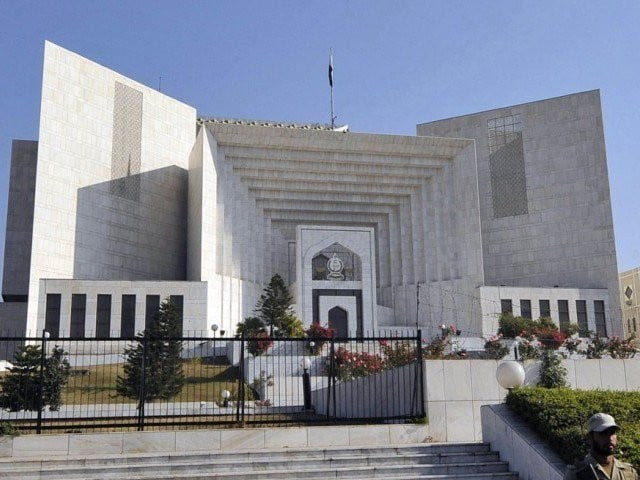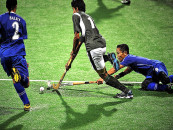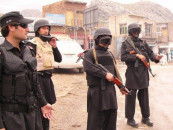SC judge irked by ‘culture of crying foul’
Judge asks why no-trust voting was not banned if defection is 'such a big crime'

Irked by criticism of the Supreme Court’s recent judgments, Justice Ijazul Ahsan on Tuesday observed that it has become a culture in the country to blame courts if the decisions pronounced by the judges do not favour the parties involved.
Justice Ahsan, who sits on the five-member bench hearing a presidential reference seeking interpretation of Article 63-A, made the remarks a day after Chief Justice Umar Ata Bandial asked why the apex court’s adjudication upon political matters was sought in the first place when leaders end up subjecting it to curses at rallies.
Apparently referring to former PM Imran Khan, who feels aggrieved by the judiciary’s actions on the eventful night of his ouster through a no-confidence vote ordered by the top court, the chief justice had said how could the judiciary deliver judgments if some political leader manages to gather 10,000 to 15,000 people in political rallies, only to reject the verdicts.
Read: Imran asks judiciary why courts opened at midnight
During the course of hearing on Tuesday, Justice Ahsan aired similar concerns, noting that the courts were praised if the decisions “are favourable and grilled if the decisions turn out to be unfavourable”.
Meanwhile, Justice Jamal Khan Mandokhel said people do know about the judgments of the court, yet they blindly follow whatever their leaders say. The bench made the remarks after PPP lawyer Farook H Naek said the country was heading towards “anarchy” and nobody was willing to accept the decision of the Supreme Court.
About Article 63-A, Justice Jamal Khan Mandokhail wondered why voting on a no-confidence motion against the prime minister was not banned if the defection of lawmakers was "such a big crime".
Justice Ijazul Ahsan said prima facie the purpose of this article was to stop floor-crossing.
“The court wants to examine if the punishment for defection is harsh enough to act as a deterrent,” he added. “What will be the sentence for defection, this is the actual question,” he said.
Justice Mandokhel asked if defection was a crime then why the vote of such a person is counted. “Is it a crime to vote against the party lines…what kind of crime is this that has been allowed by the Constitution.”
Read More: Petition filed in SC to declare defection 'unconstitutional'
"If it is a crime, then why is the vote of a criminal counted?" he questioned. Chief Justice Umar Ata Bandial said the court gave its recommendations in a case regarding the Senate election but nobody followed that. “Why are political parties acting as neutral on defections,” he said, adding that defectors were given offices in other parties.
Naek argued that Article 96 of 1973’s Constitution stopped defections. He added that as per the 1973 Constitution, the vote of defectors would not count. He added that a military dictator added Articles 62-63 to the Constitution.
Justice Bandial said if a member casts a vote against the party lines during the fourth year of the government then it would probably take a year for the Election Commission of Pakistan (ECP) and the Supreme Court to decide on the case against the said member. However, by the time reference would be decided the assemblies would have completed their term and the member would not face any consequences, such as de-seating.
The hearing was subsequently adjourned till Wednesday.



















COMMENTS
Comments are moderated and generally will be posted if they are on-topic and not abusive.
For more information, please see our Comments FAQ